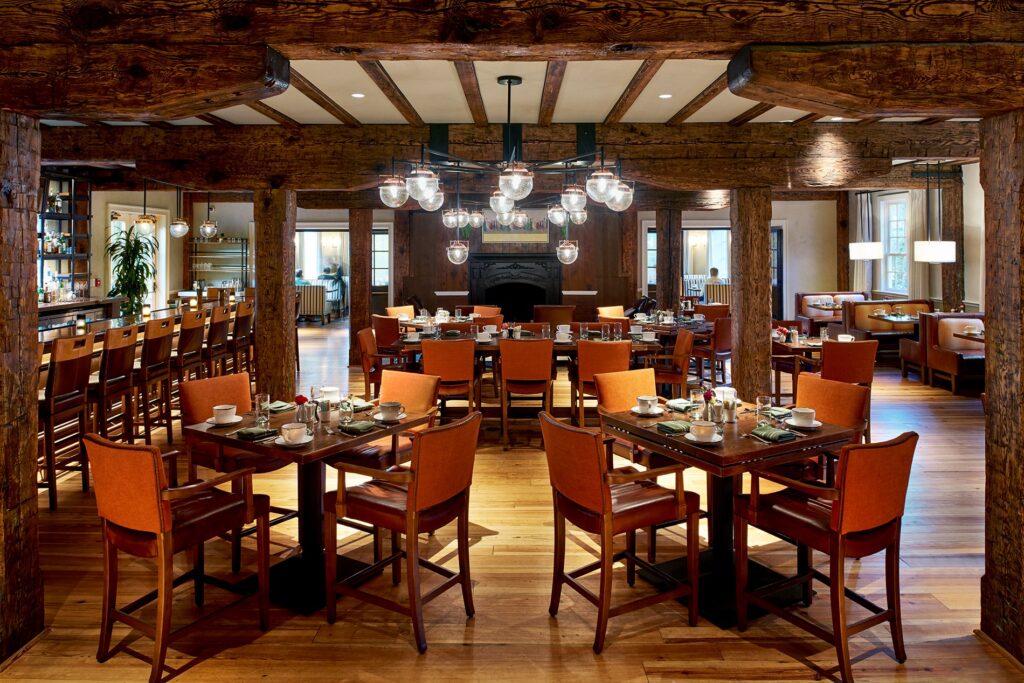Introduction
In the world of hotels today, it’s really important to know what your guests need and what troubles they might be facing. Think of the hotel business as a big competition. Everyone wants to be the best and have the most guests choose their hotel. For the people who work in hotel sales, finding out what bothers or annoys guests isn’t just about fixing issues. It’s more about making each guest’s stay special and memorable. But, figuring out these problems can seem like a big task. How do hotel workers do this without getting confused or overwhelmed?
This article is here to help. We’re going to show you eight easy ways that the folks who sell hotel stays can learn about and solve the problems their guests might have. These steps are straightforward and can help your hotel stand out by making sure your guests are happy and have nothing to complain about. Let’s dive in and make things better, one step at a time.
Learn how hoteliers can identify customer pain points in eight simple steps:
1. Engage in Active Listening
Active listening is a super important skill, especially for those working in hotels. Imagine yourself as a detective, but instead of solving mysteries, you’re discovering what your guests need or are unhappy about. When you talk to guests, it’s not enough to just hear the words they say. You need to really listen.
This means paying close attention to everything. Notice the words they choose. Are they happy, sad, frustrated? Listen to their tone of voice. Is it calm, excited, annoyed? Even look at how they stand or move their hands. These are all clues that can tell you what they’re feeling.
Sometimes, a guest won’t come right out and say, “I’m unhappy because of this.” They might give small hints instead. Maybe they make a casual comment about the room temperature or they seem hesitant when asking for something. These little signs are important. They can help you understand what the guest really needs or what might be making them uncomfortable.
To become a pro at active listening, hotel sales teams can practice and learn new listening skills. It’s a bit like training to have superpowers. You’re learning how to catch every detail and understand what guests are really saying, even if they’re not saying it directly. This helps you figure out both the big and the small problems they might have.
2. Analyze Customer Feedback
Analyzing customer feedback is like going on a treasure hunt for the hotel. This feedback, or treasure, can be found in different places. Some guests might fill out a survey to tell you about their stay. Others might leave comments on the internet, like on a review website or social media. And sometimes, guests will tell you directly what they think while they are still at the hotel.
This feedback is super valuable because it’s full of hints and clues. These hints can tell you what guests really enjoy about your hotel and what could be making them unhappy. To make sure you find and use this treasure well, the hotel’s sales team needs to collect all these pieces of feedback. Once you have them, it’s time to play detective again. You need to look for patterns or things that keep being mentioned.
Are a lot of guests saying they love your breakfast? That’s great! It means you’re doing something right, and you should keep it up. But what if many guests are complaining about the Wi-Fi being slow? That’s a clue that something needs to be improved.
Paying attention to both the good and the bad feedback is really important. You want to know what makes guests happy so you can keep doing it. But you also need to know about any problems so you can fix them. This makes your hotel even better.
It’s also a good idea to encourage guests to share their thoughts with you. You can do this by asking them to fill out a survey, leave a review online, or just talk to you during their stay. The more feedback you get, the more you know about how to make your hotel the best it can be for your guests.
3. Utilize Social Media and Online Platforms
Using social media and online platforms is like having a superpower for hotels. Nowadays, almost everyone uses the internet to share their thoughts and experiences. They might post a photo of their hotel room on Instagram, tweet about the service they received, or leave a detailed review on websites like TripAdvisor.
These online spaces are much more than places to show off or advertise. They are like big listening ears for hotel sales teams. By paying attention to what guests are posting online, hotels can learn a lot. Even if a guest doesn’t tell the hotel directly how they feel, they might share it online for everyone to see.
There are special tools designed to help hotels find these online mentions. These tools can search through lots of social media posts and reviews to find out what people are saying about the hotel. It’s like having a magic net that catches all the important comments about your hotel from the vast ocean of the internet.
By using these tools, hotels can get a clear picture of what guests love and what they don’t. If guests are praising the hotel’s breakfast or the friendliness of the staff, the hotel knows it’s doing something right. But if guests are complaining about the rooms being too cold or the Wi-Fi being slow, the hotel now knows what it needs to work on.
Listening to what guests say online helps hotels understand how they can make their guests’ experiences better. It’s like being given a map that shows you where the treasure is buried. The “treasure” in this case is the key to making guests happy and solving any problems that might stop them from enjoying their stay.
4. Implement Mystery Shopping
Mystery shopping is like sending a secret spy into your hotel. This spy acts just like any other guest. They check in, stay in the rooms, use the services, and then check out. But they have a special mission. While they’re doing all these things, they’re also watching very closely. They notice how friendly the staff is, how clean and comfy the rooms are, and whether everything works like it should. They’re looking for anything that might not be perfect.
The reason mystery shopping is so helpful is that sometimes, when you see or do something every day, you might not notice small problems anymore. It’s like when you have a picture hanging crooked on the wall at home. At first, it bothers you, but after a while, you stop seeing it’s not straight. Mystery shoppers are fresh eyes that can spot these “crooked pictures” in the hotel.
These secret shoppers take notes on everything they see and experience. Then, they share this information with the hotel. Because they’re pretending to be regular guests, their feedback is really honest and clear. They can point out things that might make guests unhappy or suggest ways to make the hotel even nicer for people staying there.
Starting a mystery shopping program is like hiring detectives for your hotel. Their reports give you the inside scoop on what it’s really like to be a guest at your hotel. This information is super valuable because it helps the hotel understand what it’s doing well and what needs to be fixed or improved. It’s all about making sure every guest has the best stay possible.
5. Monitor Industry Trends
Monitoring industry trends is like being a lookout on a ship, watching for what’s coming up on the horizon. In the hotel world, this means paying attention to the latest changes and new things happening. Hotel sales teams should keep their eyes open for any new ways of doing things or what guests are starting to like more.
For example, imagine if suddenly, lots of guests start liking to check into their rooms using their smartphones, without having to wait at the front desk. If your hotel doesn’t offer this option yet, it might be time to start thinking about it. This is just one way of staying updated with what’s popular and making sure your hotel keeps making guests happy.
It’s all about understanding the big picture of how the hotel industry is moving. Maybe eco-friendly practices are becoming really important, or maybe guests are looking for hotels with cool, unique themes. Whatever the trend, if you know about it, you can make changes to your hotel so it meets these new expectations.
Staying ahead of trends is like being one step in front of your guests’ wishes. Before they even ask for something, your hotel is already offering it. This keeps your guests surprised and delighted, making sure they have a great experience and want to come back. It’s about being ready to change and adapt, so your hotel always feels fresh and exciting to guests.
6. Foster an Internal Culture of Feedback
Fostering an internal culture of feedback is like building a big team where everyone plays a part in making the hotel better. Imagine every person who works at the hotel, whether they are at the front desk, in the kitchen, cleaning rooms, or fixing things, feels free and encouraged to share their ideas and what they notice around the hotel.
This culture of sharing is very important because it helps the hotel learn about little issues before they grow into big problems. For example, if a cleaner notices that a type of soap in the rooms causes skin irritation for some guests, they can speak up. Then, the hotel can change the soap before more guests have the same problem.
It’s like having a big family where everyone looks out for each other and the guests. By talking and listening to each other, all the staff can help find solutions faster. Maybe the person at the front desk has a great idea for making check-in smoother, or someone in the kitchen has a suggestion for a new breakfast item that guests might love.
For this to work well, everyone in the hotel needs to feel comfortable speaking up. They should know that their ideas and observations are valued, no matter what their job is. This means the hotel managers need to listen and show that they appreciate these suggestions. They might even set up regular meetings where everyone can share their thoughts or have a suggestion box where staff can drop their ideas anytime.
Creating this kind of environment makes solving problems a team effort. It also makes working at the hotel more enjoyable because everyone knows they have a part to play in making guests’ stays wonderful. This teamwork makes the hotel a better place for everyone, both staff and guests.
7. Utilize Data and Analytics
Utilizing data and analytics is like being a detective with a magnifying glass, but instead of looking for clues at a crime scene, you’re looking at information to help make the hotel better. Data and analytics involve collecting and examining numbers and facts about how guests use the hotel and what they think about it.
For example, the hotel can look at which rooms are booked the most, what times of the year are busiest, and what guests are saying in their feedback. This might include comments from surveys, online reviews, or even notes left at the front desk.
Let’s say the hotel notices that a lot of guests mention how much they love the breakfast. This is a good sign that the breakfast is a big hit, and the hotel should keep it up. But maybe there are also comments about the Wi-Fi being slow. Seeing this pattern tells the hotel that improving the Wi-Fi speed could make a big difference in guest satisfaction.
Data and analytics can also show things that might not be so obvious. Maybe the data reveals that rooms on the higher floors are more popular than those on lower floors. This could mean guests enjoy a better view, so the hotel might decide to add more features or decoration to rooms on lower floors to make them more appealing.
Using all this information, the hotel can make smart decisions on what to improve or change. It’s like having a roadmap that shows you exactly where to go to make guests happier. This way, the hotel can focus on what really matters to guests, making their stays even better.
8. Continuously Evaluate and Adapt
Continuously evaluating and adapting is like being on a never-ending road trip with your hotel. Imagine your hotel is a car, and you’re driving towards being the best place for guests to stay. But the road isn’t straight or easy; it has lots of turns and bumps. That’s why you can’t just drive without paying attention. You need to keep an eye on the road, watch the signs, and sometimes change direction to get to where you want to be.
This means the hotel must always be on the lookout, seeing what guests like and don’t like, and what new things they might want. It’s not enough to ask guests once a year what they think. The hotel has to keep asking, keep listening, and keep watching how guests react to everything.
For example, maybe guests start wanting more eco-friendly options at the hotel, like recycling bins in their rooms or organic food choices. If the hotel notices this trend, it can start offering these options, showing guests that their opinions matter and that the hotel cares about the same things they do.
But the world changes fast, and what guests want can change too. That’s why the hotel must be ready to learn new things and make changes. Maybe there’s a new type of technology that makes checking in easier, or maybe guests start preferring rooms with space to do yoga. Whatever it is, the hotel needs to adapt and offer these new things.
By continuously evaluating what’s going on and being ready to adapt, the hotel makes sure it’s always a place guests love. It shows that the hotel understands and meets their needs, making them feel at home and wanting to come back. This ongoing journey of improvement keeps the hotel moving forward and keeps guests happy.
FAQ
1. What is a customer pain point?
A customer pain point is something that bothers or upsets guests when they stay at a hotel. It can be anything from slow Wi-Fi to not having enough towels in the room.
2. Why is it important to listen to what guests say?
Listening to guests helps the hotel understand what makes them happy or unhappy. This way, the hotel can fix problems and make the guests’ stay better.
3. How can reading online reviews help a hotel?
Online reviews can show what guests liked and didn’t like about their stay. This helps the hotel know what to improve, even if guests don’t tell them directly.
4. What is mystery shopping?
Mystery shopping is when someone secretly checks into a hotel as a guest to see what’s good and what’s not. They report back so the hotel can make things better.
5. How do trends in the hotel industry affect guest satisfaction?
Trends show what guests expect or like these days, like being able to check in with their phone. Knowing trends helps hotels keep guests happy by meeting their expectations.
6. What does it mean to create a culture of feedback in a hotel?
It means everyone working at the hotel is encouraged to share ideas on how to make things better for guests. It helps find small problems before they become big ones.
7. How can data and analytics help identify customer pain points?
Data and analytics help the hotel see patterns, like what guests book most or complain about. This information helps the hotel know where to make improvements.
8. Why is it important to keep evaluating and adapting?
The world and what guests want keep changing. Hotels need to keep checking if they’re doing things right and change when needed to keep guests happy.
9. How can hotels encourage guests to give feedback?
Hotels can ask guests to fill out surveys, leave online reviews, or simply talk to them during their stay. Making it easy and quick can encourage more feedback.
10. Can social media really help hotels understand their guests better?
Yes, by watching what guests say on social media about their stay, hotels can learn about their likes and dislikes. This helps the hotel improve and make guests’ future stays better.


